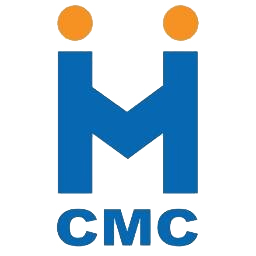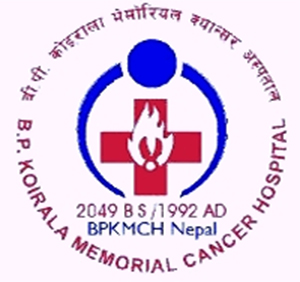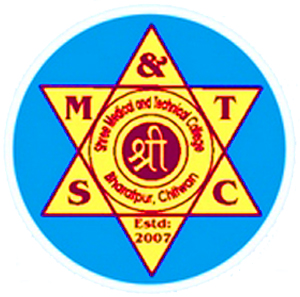Overview
Bachelor in Nursing (BNS) Program at Bharatpur Hospital Nursing College (Affiliated with Tribhuvan University)
Course Overview
The Bachelor in Nursing Science (BNS) program offered at Bharatpur Hospital Nursing College, which is affiliated with Tribhuvan University, is a three-year academic journey designed to prepare competent nursing professionals. The BNS program focuses on theoretical and practical excellence, enabling graduates to fulfill roles as caregivers, managers, educators, and researchers. With specializations in Community Health Nursing, Adult Health Nursing, Child Health Nursing, and Psychiatric Nursing, this program enables students to acquire advanced knowledge and skills essential to addressing diverse healthcare challenges.
Program Duration
The Bachelor in Nursing Science (BNS) program spans three years, with each year offering targeted specialization and development:
-
Year 1: Foundational and theoretical nursing concepts.
-
Year 2: Intermediate-level specialization and practical exposure.
-
Year 3: Advanced specialization and leadership development.
Up to 40 weeks of theoretical instruction, clinical practices, and evaluations each academic year.
Eligibility Criteria
Academic Requirements:
-
Minimum 50% marks or 2.4 CGPA in Nursing Proficiency Certificate Level or Diploma Level.
-
Must be registered with the Nepal Nursing Council (NNC).
-
Entrance Examination:
-
The MECEE-BL (Medical Education Common Entrance Examination for Bachelor Level) is mandatory for admission.
-
A minimum mark of 50 percentile is required to pass.
-
Admission Process
Entrance Exam:
-
Format: Multiple-choice questions (200 questions, 200 marks).
-
Negative marking: 0.25 marks are deducted (minus) for each incorrect answer.
-
Duration: 3 hours.
-
Required Documents for Admission:
-
Academic certificates (SEE/SLC, Proficiency Certificate Level, transcripts, character certificate).
-
Citizenship or passport.
-
Admit card for the entrance exam.
-
Reservation documents (if applicable).
-
Foreign Candidates:
-
Must complete an online application within the stipulated timeline.
Course Outline
The curriculum is enhanced to balance theoretical knowledge with practical expertise. Below is the specialization breakdown:
-
Community Health Nursing (3 years)
-
Adult Health Nursing (3 years)
-
Child Health Nursing (3 years)
-
Psychiatric Nursing (3 years)
Each track integrates:
-
Core Subjects: Fundamentals of Nursing, Community Health, Midwifery, and Leadership.
-
Specialized Subjects: Behavioral Science, Adult and Child Nursing, and Gynaecology.
-
Practical Training: Clinical rotations and hospital-based assignments.
Subjects Offered
Core Subjects:
-
Community Health Nursing
-
Adult Health Nursing
-
Child Health Nursing
-
Midwifery and Gynaecological Nursing
-
Leadership and Management
-
Behavioral Science and Mental Health
-
Fundamentals of Nursing
Basic Sciences:
-
Applied Health Science
-
Mental Agility Test (Verbal, Numerical, Logical, and Abstract Reasoning)
Program Objectives
The BNS program aims to:
-
Train students to provide comprehensive nursing care.
-
Enable nurses to assume leadership roles in healthcare delivery systems.
-
Foster research skills for evidence-based practice.
-
Equip students with communication and management skills for multidisciplinary collaboration.
-
Promote cultural sensitivity and ethical care in diverse healthcare settings.
Teaching Methodology
The program employs an interactive and student-centric approach:
-
Lectures and Seminars: For foundational theories and advanced concepts.
-
Clinical Practice: Hands-on training in hospitals and community settings.
-
Case Studies and Simulations: Real-world problem-solving exercises.
-
Workshops and Conferences: Skill enhancement and networking opportunities.
-
Research Projects: Guided studies to develop investigative skills.
Learning Outcomes
Graduates of the BNS program will:
-
Provide patient-centered care in diverse healthcare environments.
-
Demonstrate leadership in nursing management and education.
-
Conduct research to improve nursing practices and healthcare outcomes.
-
Apply ethical principles and cultural competence in patient care.
-
Collaborate effectively with multidisciplinary teams.
-
Adapt to evolving healthcare technologies and practices.
Future Scope
Graduates of the BNS program can pursue:
-
Academic Progression: Master’s degrees in nursing or related fields.
-
Research Opportunities: Engage in national and international health projects.
-
Specializations: Focus on fields like oncology, geriatrics, or public health.
-
Global Careers: Work as registered nurses in healthcare systems worldwide.
Career Prospects
Potential job roles include:
-
Staff Nurse
-
Nurse Educator
-
Public Health Nurse
-
Clinical Researcher
-
Nurse Manager
-
Community Health Worker
Industries employing BNS graduates:
-
Hospitals and Clinics
-
Community Health Centers
-
Non-Governmental Organizations (NGOs)
-
Research Institutions
-
Academic Institutions
Scholarship Opportunities
Scholarships are available under the National Medical Education Rules, 2077:
-
Open Competition: 55% of total seats.
-
Reserved Categories: 45% distributed among females, Dalit, Adivasi Janajati, and other marginalized groups.
Fees Structure
-
The total fee structure varies by institution. An estimated fee breakdown can include:
-
First Year: NPR 250,000
-
Second Year: NPR 200,000
-
Third Year: NPR 200,000
-
Extracurricular and Co-Curricular Activities
The program encourages participation in:
-
Health Camps and Community Service.
-
Nursing Seminars and Workshops.
-
Leadership Training and Personality Development.
-
Cultural and Sports Events.
Real-World Application
Students use clinical practice to address real healthcare challenges, providing holistic care in hospitals, communities, and specialized health units.
Sustainability and Social Impact
The program emphasizes sustainable healthcare practices, including waste management, environmental health, and community engagement.
Skill Development
Graduates acquire:
-
Clinical skills for patient care.
-
Research and data analysis skills.
-
Leadership and managerial capabilities.
-
Communication and interpersonal skills.
Global Perspective
The curriculum incorporates international best practices, preparing graduates to compete globally and contribute to cross-border healthcare solutions.
Facilities and Support
Students benefit from:
-
Modern laboratories and clinical simulation centers.
-
Research facilities with access to global healthcare databases.
-
Counseling and career guidance services.
Why Choose the Bachelor in Nursing (BNS) Program?
The BNS program stands out due to:
-
Specialized tracks addressing diverse healthcare needs.
-
Integration of theory, practice, and research.
-
Scholarships and financial support for deserving students.
-
Emphasis on global employability and leadership.
Is the Bachelor in Nursing (BNS) Program Right for You?
This program is ideal for individuals passionate about healthcare, seeking leadership roles, and committed to making a social impact through nursing.
What is the Future of the Bachelor in Nursing (BNS) Program?
In the next 15-20 years, the BNS program is predicted to:
-
Adapt to advancements in medical technology.
-
Introduce new specializations like telemedicine and AI in healthcare.
-
Address emerging global health challenges such as pandemics and chronic diseases.
-
Expand opportunities for nurses in research, policymaking, and global health initiatives.
How to Improve Your Nursing Studies?
To excel in nursing studies:
-
Set specific goals and make a study schedule.
-
Engage actively in clinical rotations to gain hands-on experience.
-
Participate in group discussions and collaborative projects.
-
Stay updated on advancements in healthcare technology.
-
Practice self-care to manage mental and physical well-being.


















